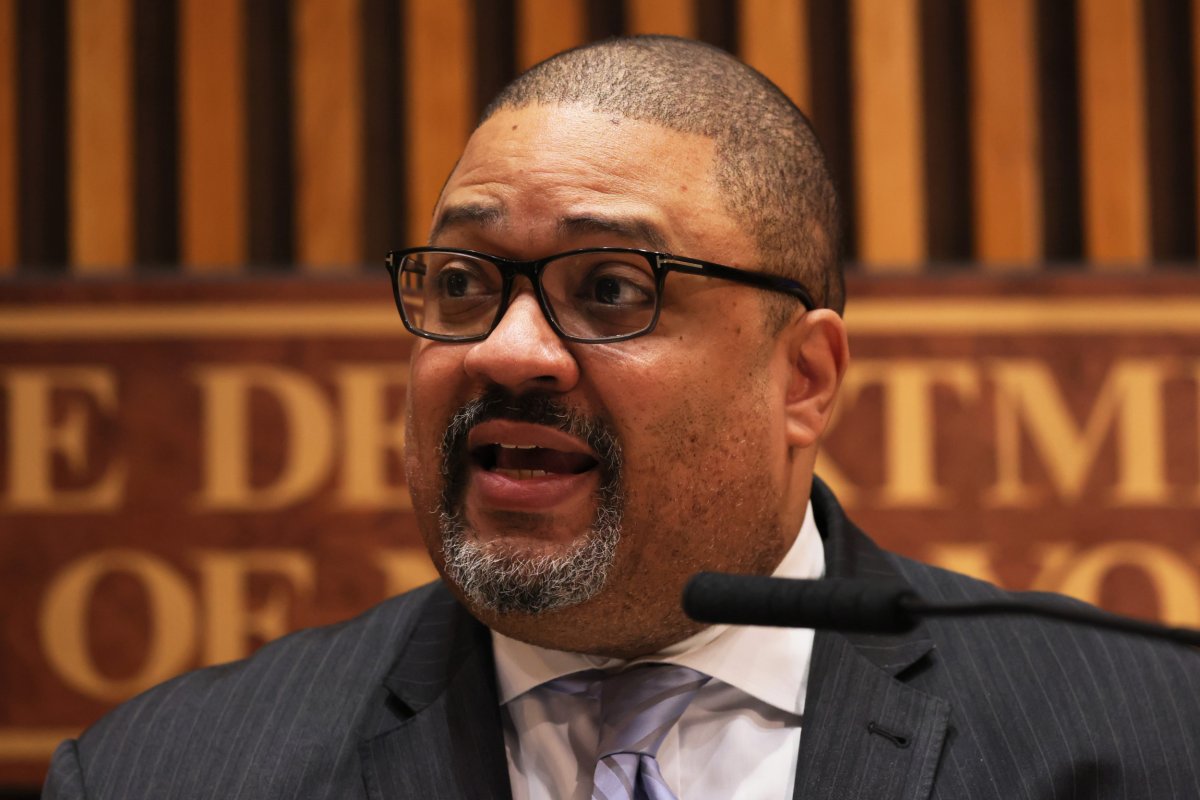Alarmed by a surge in fraud draining bank accounts through popular mobile payment apps like Venmo, Cash App and Zelle, Manhattan District Attorney Alvin Bragg, Jr., has sent scathing letters to the CEOs of each company, demanding immediate action to protect consumers.
In the letters, Bragg described the crimes as involving an unauthorized user gaining access to unlocked devices, then stealing significant sums of money from bank accounts by making purchases with the mobile payment apps and using financial information from them to open new accounts.
Citing statistics and personal stories of financial hardship, Bragg put the onus on the popular peer-to-peer payment apps to tighten security measures. "No longer is the smartphone itself the most lucrative target for scammers and robbers—it's the financial apps contained within," Bragg told Newsweek.

"Thousands or even tens of thousands can be drained from financial accounts in a matter of seconds with just a few taps," he said to Newsweek. "Without additional protections, customers' financial and physical safety is being put at risk."
While Bragg serves as the New York County district attorney, he says the problem is a nationwide issue. "Just in the past year, there have been thefts stretching from Los Angeles, where several people were robbed of thousands of dollars through Venmo at knifepoint, to Orlando, where a woman had thousands drained from her Venmo after a child asked to use her phone," Bragg said in the letters. "Similar thefts and robberies have been publicly reported in West Virginia, Louisiana, Illinois, Kansas, Tennessee, Virginia and elsewhere across the United States."
Bragg said that despite the companies' assurances of safety that they make to their users, instances of theft are rising due to the growing sophistication of the thieves using the apps. "In some instances, the fraudster asks to use an individual's smartphone for personal use, and then quickly sends large amounts of money to themselves through the victim's financial application. In other instances, the offender asks for a donation for a specific cause, offers to transfer the money directly from the victim's smartphone, and then transfers significant funds to the fraudster's own account," Bragg said to the CEOs.
He said that in all cases, "further security measures to prevent unauthorized access to unlimited use of your financial services would have prevented such crimes."
In response, a Cash App spokesperson told Newsweek that the company remains "committed to building trust with our customers and investing in areas that help build a safe and secure platform." The San Francisco-based company said that it works "proactively and diligently to safeguard our customer's money and mitigate against the risk of fraud on our platform through a combination of preventative controls like multi-factor authentication, account transaction limits, fraud detection, and consumer education."
Similarly, a spokesperson for Early Warning Services, the network operator of Zelle, told Newsweek that it was aware of the criminal incidents described in the Manhattan District Attorney's letter, noting that "less than one tenth of one percent of transactions are reported as fraud or scams, and that percentage keeps getting smaller."
A spokesperson for PayPal told Newsweek on Wednesday that the company takes "the safety and security of our customers and their information very seriously. In addition to proactively leveraging sophisticated fraud detection tools, manual investigations, and partnering closely with law enforcement agencies to protect our customers against common scams, we have several options in place to enable enhanced layers of security and protection directly within our apps."
Still, Bragg offered the fintech companies a solution, recommending a series of measures, including multi-factor authentication, which adds an additional layer of security beyond a simple password. He also suggested imposing default lower limits on daily monetary transfers and requiring wait times and secondary verification for large transactions, giving users time to identify and cancel unauthorized activities.
Bragg has sought meetings with the CEOs of Venmo, Cash App and Zelle to discuss the security concerns, but his office told Newsweek that there were no updates on the meeting requests.
Much like how Apple, the tech giant behind the iPhone, implemented stringent security measures like "Stolen Device Protection," Bragg said that the peer-to-peer payment companies need to further protect their users by doing the same, adding that a failure to do so will result in more "illegal behavior and countless unsuspecting victims."
Have you fallen victim to these increasingly sophisticated scams? We would like to hear from you. Contact us at personalfinance@newsweek.com to tell us your story.
Update 1/24/24, 9:00 a.m. ET: This article was updated to include comments from Cash App and Zelle.
Update 1/24/24, 12:49 p.m. ET: This article was updated to include comments from PayPal.
Uncommon Knowledge
Newsweek is committed to challenging conventional wisdom and finding connections in the search for common ground.
Newsweek is committed to challenging conventional wisdom and finding connections in the search for common ground.
About the writer
Aj Fabino is a Newsweek reporter based in Chicago. His focus is reporting on Economy & Finance. Aj joined Newsweek ... Read more
To read how Newsweek uses AI as a newsroom tool, Click here.








